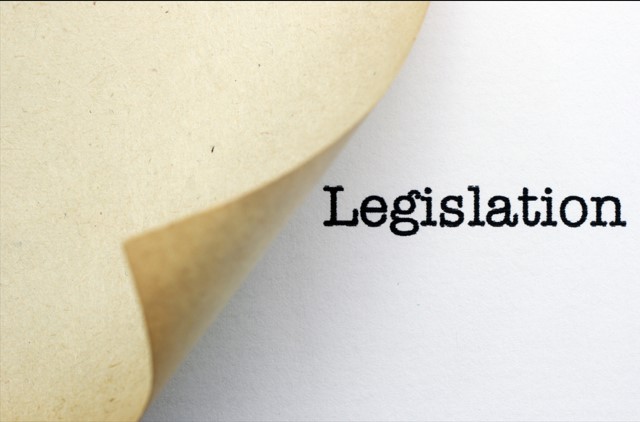Federal Appeals Court Strikes Down Georgia’s Voting Restrictions
Overview of the Ruling
On August 22, 2024, the Eleventh Circuit Court of Appeals issued a significant ruling regarding voting rights in the state of Georgia. The court struck down stringent voting restrictions put in place in 2022, which included new requirements for voter identification, limitations on drop box availability, and a reduction in early voting periods. The 2-1 decision stressed that these measures disproportionately disenfranchised minority and low-income voters, violating key components of the Voting Rights Act and the Fourteenth Amendment. The court articulated that the fundamental right to vote should not be compromised by arbitrary and discriminatory barriers, especially in the absence of credible evidence indicating widespread voter fraud.
Details of the Voting Restrictions
The 2022 Georgia voting law mandated that voters provide government-issued identification to both request and cast mail-in ballots. Furthermore, it restricted the number of drop boxes to one for every 100,000 registered voters, significantly reducing access in predominantly marginalized communities. Additionally, the law prohibited third-party organizations from distributing food or water to individuals waiting in line to vote, a measure criticized for its disproportionate impact on Black voters who are statistically more inclined to utilize mail-in voting and may face longer wait times at polling locations.
Response from Voting Rights Advocates
The ruling by the Eleventh Circuit was met with applause from voting rights groups nationwide. Advocates hailed the decision as a restoration of democratic integrity and a reaffirmation of the principle that every eligible voter must have an equal opportunity to participate in the electoral process. Tanisha Moore, the director of Fair Fight Action, noted that the ruling helped to restore public trust in the democratic mechanisms that support voter participation, making a clear case against unnecessary restrictions placed on voting.
Official Reactions from State Officials
In contrast to the celebratory tone from voting rights advocates, Georgia Governor Brian Kemp expressed his disappointment and concern about the court’s decision. He described the ruling as an overstep by the judiciary, contending that it jeopardizes efforts aimed at maintaining secure elections and strengthening public confidence in the electoral system. As a result, he indicated plans to appeal the decision, emphasizing his commitment to upholding what he believes are essential measures to protect the integrity of the voting process.
Wider Implications of the Ruling
The repercussions of this important ruling extend far beyond the state of Georgia. Legal experts anticipate that the decision will serve as a critical precedent for ongoing and future challenges to similar restrictive voting laws that have emerged in various states across the country in recent years. The outcome may embolden advocacy groups to pursue legal action against laws perceived as discriminatory, encouraging more democratic participation, especially among marginalized populations.
Potential Changes in Voting Landscape
Following the court’s decision, analysts speculate about the potential transformation of the voting landscape as more states might reconsider or reevaluate restrictive measures they have adopted. This ruling highlights the conversation around voting rights in America and may catalyze further discussions at both state and federal levels regarding the balance between election security and access to the ballot. As many states prepare for upcoming elections, the spotlight may shift to legislative responses, potentially leading to initiatives that seek to expand rather than limit voter access.
Conclusion
The Eleventh Circuit Court’s ruling against Georgia’s voting restrictions marks a pivotal moment in the ongoing debate over voting rights in the United States. By overturning laws that disproportionately affect marginalized communities, the court has reaffirmed the principle that access to voting is a fundamental right that must be protected. As the implications of this decision unfold, it incites further reflection on how voting laws are crafted and implemented across the nation, with the expectation that discussions will continue regarding the need for equitable access to the voting process.
FAQs
What were the specific voting restrictions enacted in Georgia in 2022?
The 2022 Georgia voting law required voters to present government-issued ID to both request and cast mail-in ballots, limited drop boxes to one for every 100,000 voters, and made it illegal for third-party groups to distribute food or water to voters waiting in line.
Why did the court find the law unconstitutional?
The Eleventh Circuit determined that the law imposed discriminatory barriers to voting that disproportionately affected minority and low-income voters, violating the Voting Rights Act and the Fourteenth Amendment.
What are the broader implications of this ruling for other states?
The ruling is anticipated to set a significant precedent for challenges to similar restrictive voting laws across the country. It potentially encourages advocates to pursue legal remedies against measures seen as discriminatory.
How have voting rights groups responded to the ruling?
Voting rights organizations have celebrated the ruling as a major victory for democracy, emphasizing its importance in restoring public trust in the electoral process and ensuring equitable access to voting for all eligible citizens.
What actions is Georgia Governor Brian Kemp planning in response to the ruling?
Governor Brian Kemp has expressed his intent to appeal the court’s decision, arguing that it undermines efforts to secure elections and maintain public confidence in the voting process in Georgia.

